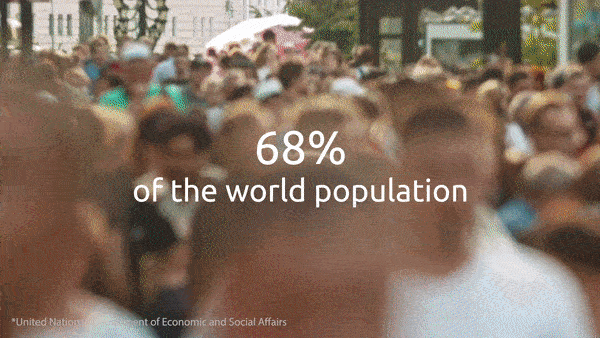The synthesized theory
The synthesized CRITICAL THEORY principles talk about today’s urban question in the context of the rural-urban matrix
A theory seminar aimed at developping the students’ critical thinking capacities about cities through the formation of novel ideas about the current state of urbanism and technology.

During this masterclass, students will be challenged to develop their own critical thinking capacities about cities through the formation of novel ideas about the current state of urbanism and technology. They will be asked to investigate diverse phenomena that stimulate their theoretical interests and avoid forming abstract generalizations about today’s urban environment.
This transversal theoretical course is structured along the three central topics of the Master Program: The Internet of Cities, The Internet of People and The Internet of Buildings. It aims to bring the Master in City & Technology students in direct contact with the front-running professionals of this multidisciplinary field. Through masterclasses, debates, book readings, articles. movies and research papers, they will be immersed in the investigation of the problematics that surround the urban realm in the 21st century.
At the end of this seminar, students will be asked to critically communicate their ideas about cities, communities, technologies, social space and the built environment.

FORMAT
The Course is developed in a transversal manner, throughout the entire Master program, following the main topic of each term: Term 1 – Internet of Cities, Term 2 – Internet of People, Term 3 – Internet of Buildings.
The course curator will give an introductory session to the course, followed by a series of masterclasses by experts, debates and finally the creation of a podcast!
MASTERCLASSES BY:
Section 1: Internet of Cities
Nikos Katsikis – Assistant Professor of Urban Design at TU Delft
Topic: Socio-metabolic relations between cities and their surrounding landscapes
Bio: Nikos works at the intersection of urbanization theory, territorial design, and geospatial analysis. His research seeks to contribute to a geographical understanding of the socio-metabolic relations between cities and their “operational landscapes:” non-city landscapes of primary production, circulation and waste disposal that support urban life.
Daniel Ibañez – IAAC Director, Architect and Doctor of Design
Topic: Wood Urbanism
Bio: Daniel Ibáñez is a Spanish practicing architect and urbanist based in Cambridge, Massachusetts, USA. He is Doctor of Design at the Harvard GSD and co-director of the Master in Advanced Ecological Buildings and Biocities (MAEBB) and the Master of Mass Timber Design (MMTD) at the Institute for Advanced Architecture of Catalunya (IAAC) in Valldaura Self-Sufficient Labs, Barcelona. Since 2017, Daniel is senior urban consultant at the World Bank advising international governments and institution on timber housing and timber urban development.
Mariano Gomez Luque – IAAC Urban Sciences Lab Director
Topic: The Late Capitalist Skyscraper Theoretically Considered
Bio: Mariano Gomez-Luque is the director of the Urban Sciences Lab at the Institute for Advanced Architecture of Catalonia (IAAC), co-director of FORMA, an office for general architecture based in Córdoba, Argentina, and an affiliated researcher at the Urban Theory Lab in the University of Chicago.
Section 2: Internet of People
Farzana Gandhi – Associate Professor of Architecture, New York Institute of Technology
Topic: Community Urbanism & Citizen Participation
Bio: Farzana Gandhi is a Registered Architect in New York and a LEED Accredited Professional. Her architecture and planning practice, Farzana Gandhi Design Studio, focuses on sustainable and socially conscious solutions, both locally and abroad
Anna Piccinni – OECD Policy Analyst and Migration Professor Temporary Faculty chez Sciences Po
Topic: Urban Integration of Migrants and Refugees
Bio: Anna Piccinni is a governance and migration specialist with a focus on local integration policies. She joined the OECD after working with several international organizations – United Nations Development Programme, United Nations Industrial Organisation and the European Union, and non-governmental organisations such as the International Rescue Committee in several African and Latin American countries.
Firas Safieddine – Founder of Spatial Forces | Spatial Designer | Neurotech Enthusiast | Artist
Topic: Metaverse and Urban Design
Bio: Firas is a leading practitioner whose work spans architecture, urbanism, design, art, and neurotechnology. He coined “Electrical Ecologies” and aims at designing the first ‘architecture brain implant’. Firas is the Chief Architect at Gamium [ an avantgarde metaverse and digital identity company ], Founder and Creative Strategist at Urbanitarian [ the world’s go-to online urban design resource archive ], author and editorial board member at UrbanNext [ an online platform that disseminates content, with the ethos of expanding architecture to rethink cities and territories ], and Chapter lead at NeurotechBCN, the Barcelona chapter of NeurotechX, an international community that fuels up the development of neurotechnology.
Section 3: Internet of Buildings
To be announced soon!
The synthesized CRITICAL THEORY principles talk about today’s urban question in the context of the rural-urban matrix